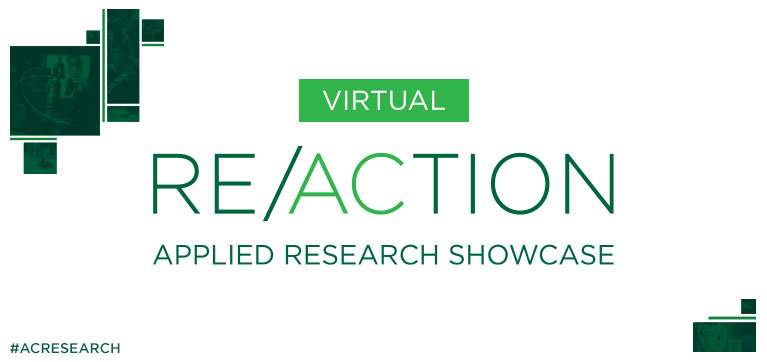AC students document Yazidi genocide in online portal
Posted on Friday, August 12th, 2022
 Students in the Interdisciplinary Studies in Human-Centred Design program at Algonquin College have developed a framework for an online resource portal cataloguing the genocide against the Yazidi people, as well as their culture and traditions. The project is one of many submitted for the next RE/ACTION Showcase on Friday, Aug. 12, where students will showcase leading-edge applied research to an audience of peers, faculty and community partners.
Students in the Interdisciplinary Studies in Human-Centred Design program at Algonquin College have developed a framework for an online resource portal cataloguing the genocide against the Yazidi people, as well as their culture and traditions. The project is one of many submitted for the next RE/ACTION Showcase on Friday, Aug. 12, where students will showcase leading-edge applied research to an audience of peers, faculty and community partners.
In partnership with Yazidi Legal Network, student researchers Anne Millar and Benjamin Varghese conducted research to envision what the portal could look like and developed a framework within the scope of the project. Their findings will serve as a proof-of-concept to create a database on crimes against Yazidis for various user groups, including human rights lawyers, academics, humanitarian workers and the Yazidis themselves.
Yazidis are Kurmanji-speaking peoples indigenous to the Kurdistan region. Canada has officially recognized the genocide of the Yazidi people by the Islamic State of Iraq and the Levant (ISIL), also known as Daesh. According to Immigration, Refugees and Citizenship Canada, over 1,400 Yazidi survivors of Daesh have resettled in Canada as of January 2021.
After Millar and Varghese completed a literature review and conducted user interviews, a number of themes emerged as requirements for the portal, including user needs and data security. They wanted to understand the very specific details that would make the portal useful to the user groups and translate that into a prototype. The portal could take the form of a search-engine based portal with built-in translation, advanced filtering and search capabilities, personalized experience based on user type, ability to save and share information easily and capabilities for users to provide useful feedback on resources and the portal itself. For the Yazidis, it could serve as a place to document their histories and traditions.
“Since Yazidis are now scattered all over the world, the portal could be a place to share their stories, culture and history,” said Varghese. “Since the Yazidi people are transitioning from an oral culture to a more written culture, they’ll have a place for themselves to be able to share audio files, videos and songs.”
For other user groups, having the ability to access the right type of information quickly was key to mapping out the framework.
“We were able to identify which additional metadata would be necessary to incorporate to enable the different user groups to access the information they need easily and quickly,” said Millar.
Data protection is another theme that emerged from the students’ user group interviews. With details on war crimes and crimes against humanity, securing sensitive information was a priority for the students.“Building access controls is a really, really important piece. Different levels of access would be granted to different people following a screening process,” said Millar. “This is horrific information that’s documented in some of these sources and we want to protect this data, as well as add trigger warnings.”
In terms of next steps, the students have completed validation testing with the user groups and incorporated their findings. From there, Yazidi Legal Network will bring the framework to potential backers to further develop what the students have created. The portal will require the expertise of various disciplines, including information architecture, usability testing and graphic design.
Learn more about this and other student research projects at the RE/ACTION Showcase on Aug. 12. Click here to register.
- Posted in
- Human-Centred Design Lab RE/ACTION Showcase
- Tags:
- Human-Centred Design Lab, Research